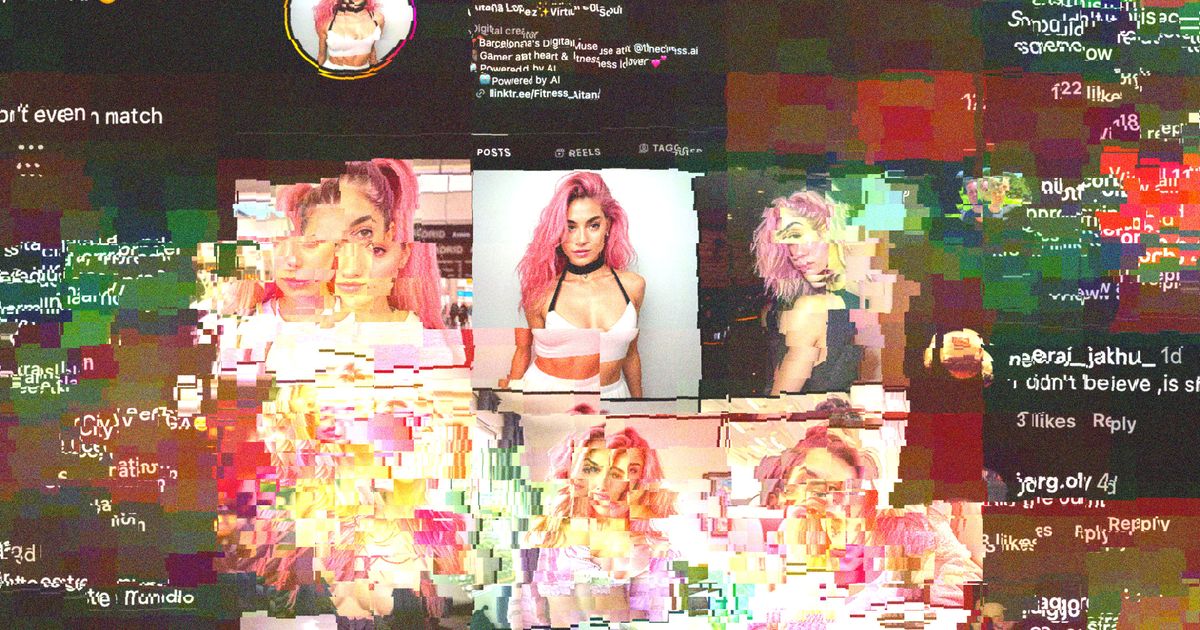In the realm of marketing, artificial intelligence (AI) is reshaping interactions with cutting-edge industries. Leading entities like Amazon, Google, and Meta are advocating for AI tools to empower advertisers in crafting ad content and visuals. These advanced technologies promise heightened efficiency, cost-effectiveness, and precise targeting capabilities. Brands are progressively embracing collaborations with AI-generated digital influencers to endorse their products, presenting a distinctive allure at a minimal expense. The Financial Times reports that bloggers are expressing reservations about this emerging trend.
A notable entrant in the rapidly expanding $21 billion content creator market is Aitana, a “virtual celebrity” brought to existence through AI mechanisms. The proponents of these hyper-realistic AI entities argue that they are revolutionizing an oversaturated market. This development has instigated concerns among human influencers who are apprehensive about potential erosion of their earnings by their digital counterparts.
Diana Nez, co-founder of The Clueless, a Barcelona-based company behind Aitana’s inception, reflected, “We were astounded by the exorbitant fees charged by celebrities today. What if we could establish our own celebrity?” Consequently, the birth of a digital sensation, albeit a captivating one, ensued.
The juxtaposition of AI generating inauthentic content in an industry reliant on authenticity, such as advertising, raises thought-provoking inquiries. Does this methodology effectively drive sales? This fundamental query encapsulates the multifaceted complexities and uncertainties introduced by generative AI.
A study by Meta sheds illumination on this investigation. Kuki, an “always-on IoT” chatbot and digital celebrity developed by IQONIC AI, featured in an H&M ad campaign. The integration of Kuki led to an 11-fold surge in ad recall compared to campaigns exclusively featuring video content, accompanied by a notable 91% reduction in cost per recalled viewer. Noteworthy digital influencers like the visually captivating Aitana blur the boundaries between reality and simulation in advertisements, whereas Kuki embodies a three-dimensional animated persona.
The notion that digital influencers are on the verge of superseding human influencers in their capacity is not entirely accurate. The advertising domain has long championed the notion of artificial talent, epitomized by figures like Lil Miquela, also recognized as “Micera” and “Minetra Sousa.” Meta’s study showcases a virtual influencer featured in e-commerce ads under their branding, straddling the line between a spokesmodel and a mascot. This approach reframes influencer marketing as a strategic instrument to optimize campaign metrics rather than a direct substitute for human influencers.
This paradigm shift in advertising introduces a fresh approach that captivates audiences through its novelty. It positions digital influencers as a conduit to amplify specific campaign outcomes rather than a replacement for human influencers. Amazon’s theory that AI-generated product images enhance ad engagement underscores this trend, even when these visuals portray products in digitally enhanced settings.
The repercussions of this transition are substantial, as online marketing pivots on quantifiable metrics that measure influence in a tangible manner. Brands may increasingly deploy synthetic entities in ads to attain superior outcomes, potentially disrupting the revenue streams of human influencers. This transformation underscores the evolving landscape where AI-driven entities can effectively supplant traditional influencers, offering a cost-efficient alternative for brands in pursuit of impactful marketing strategies.






